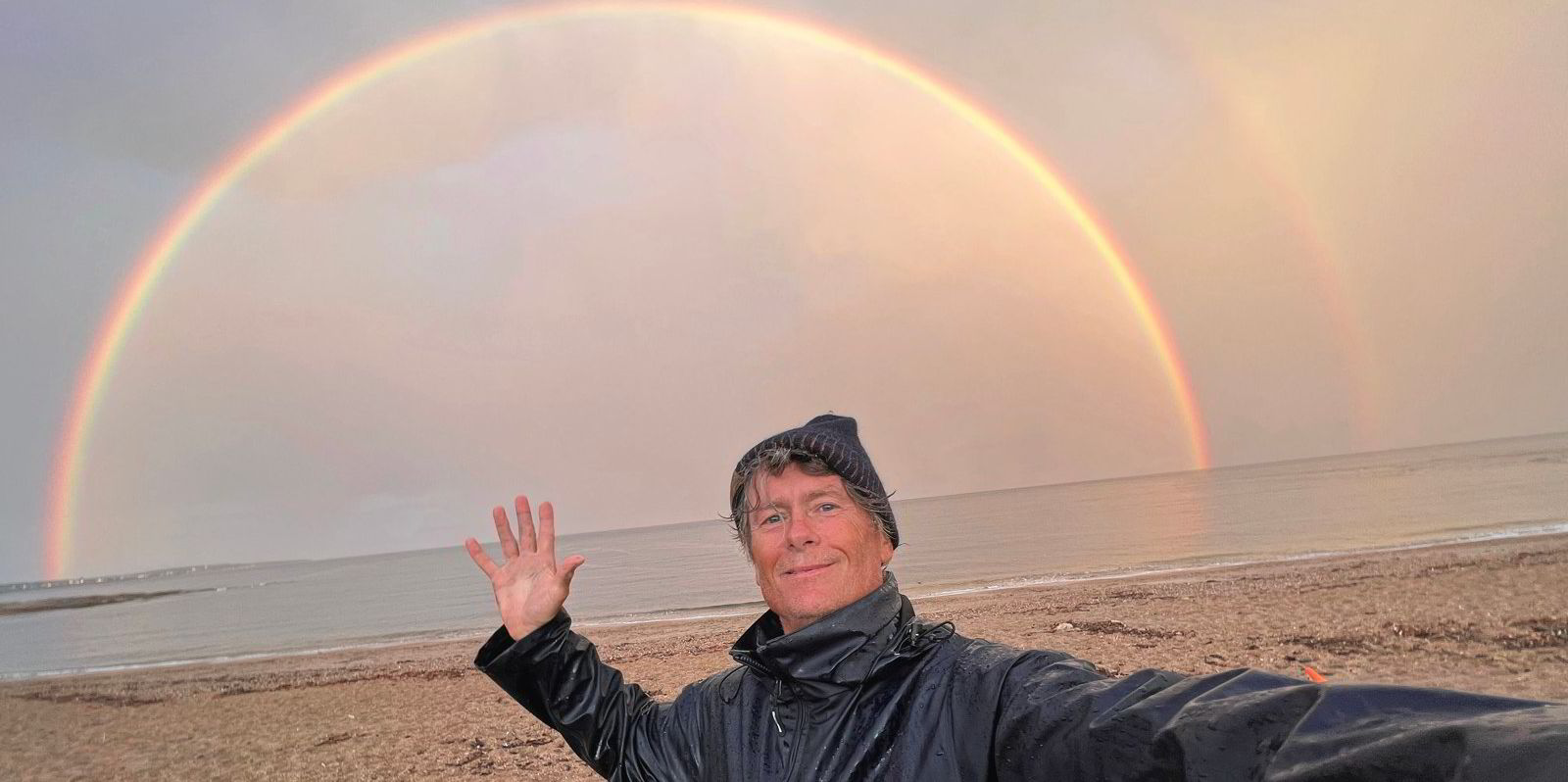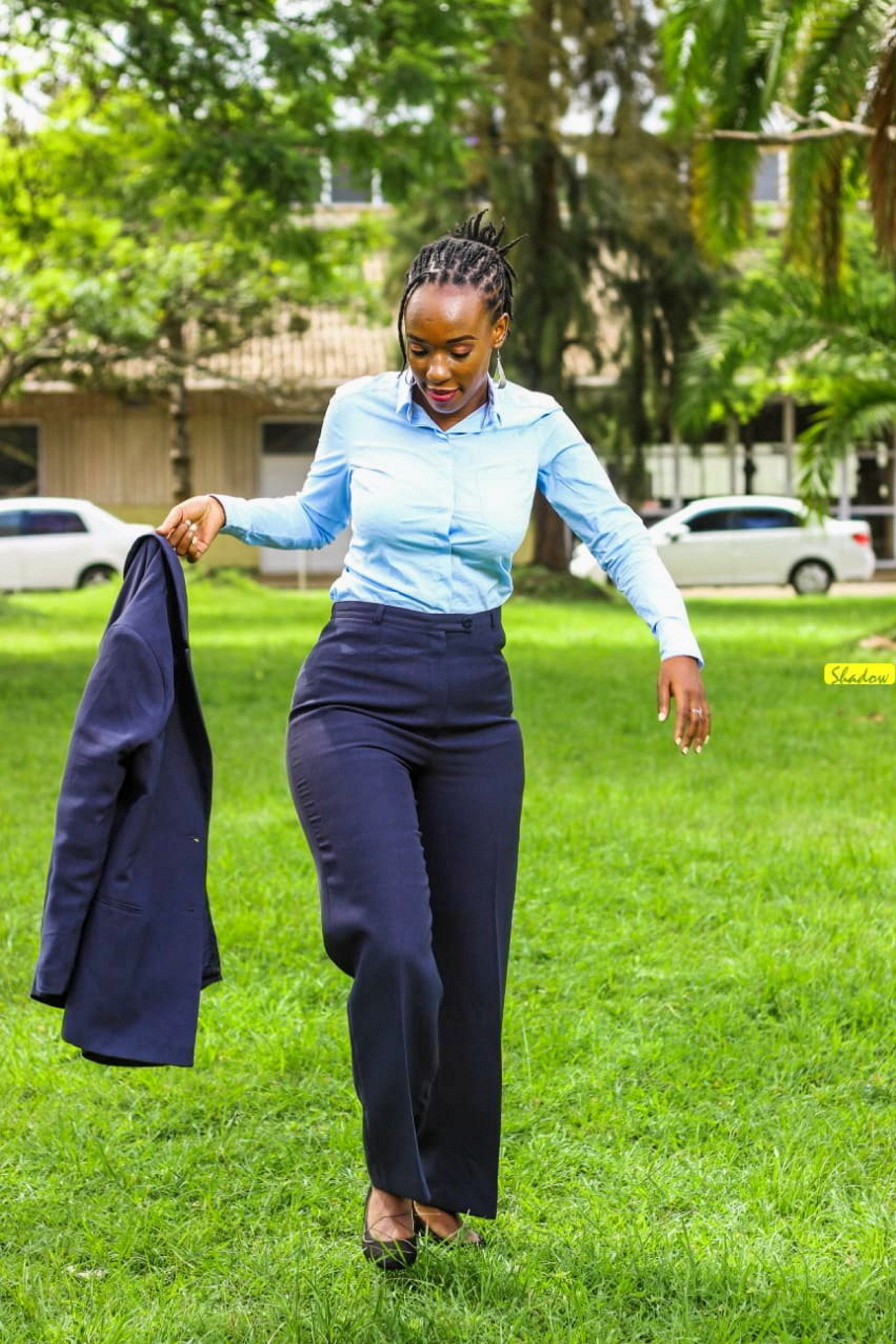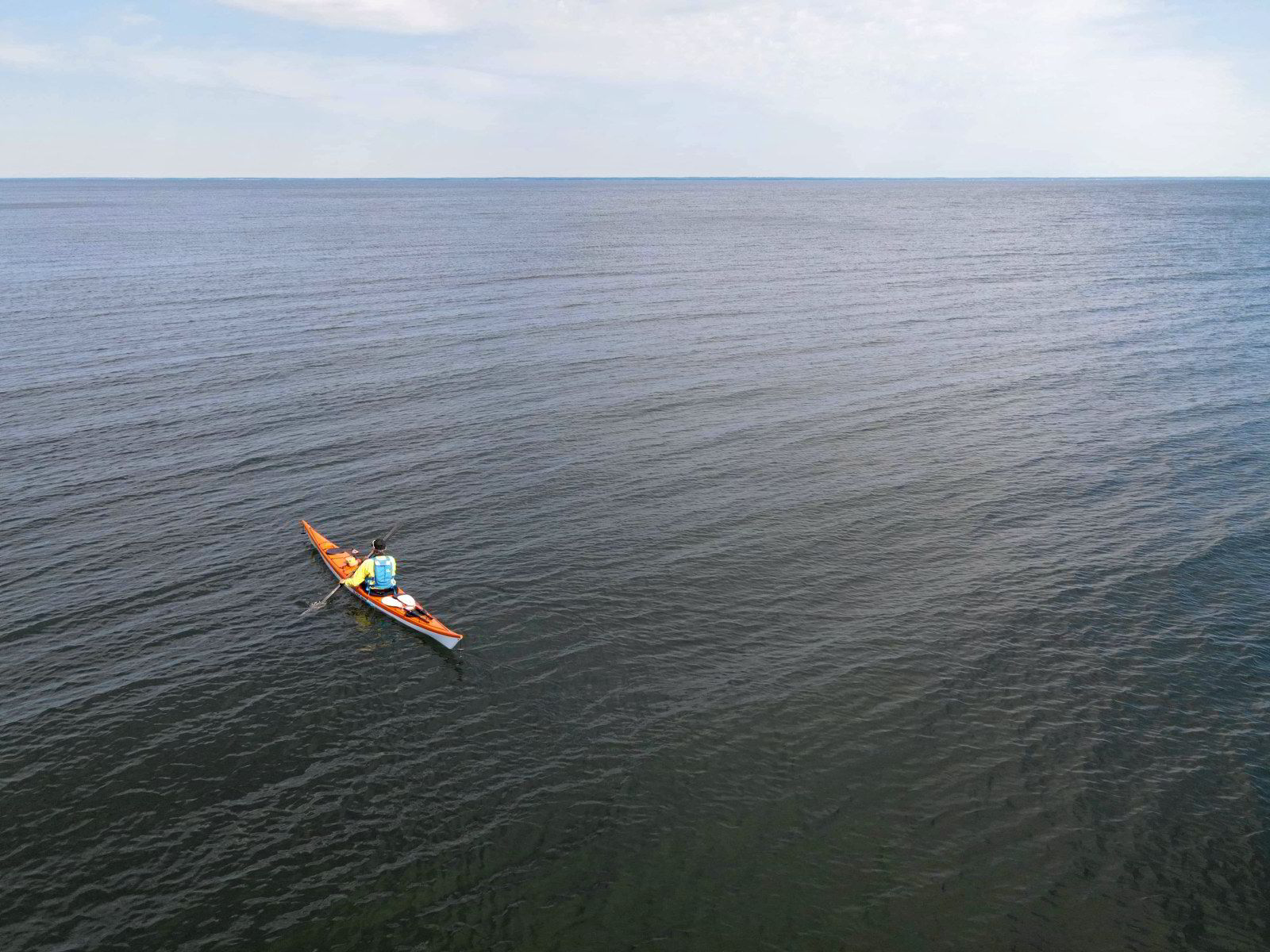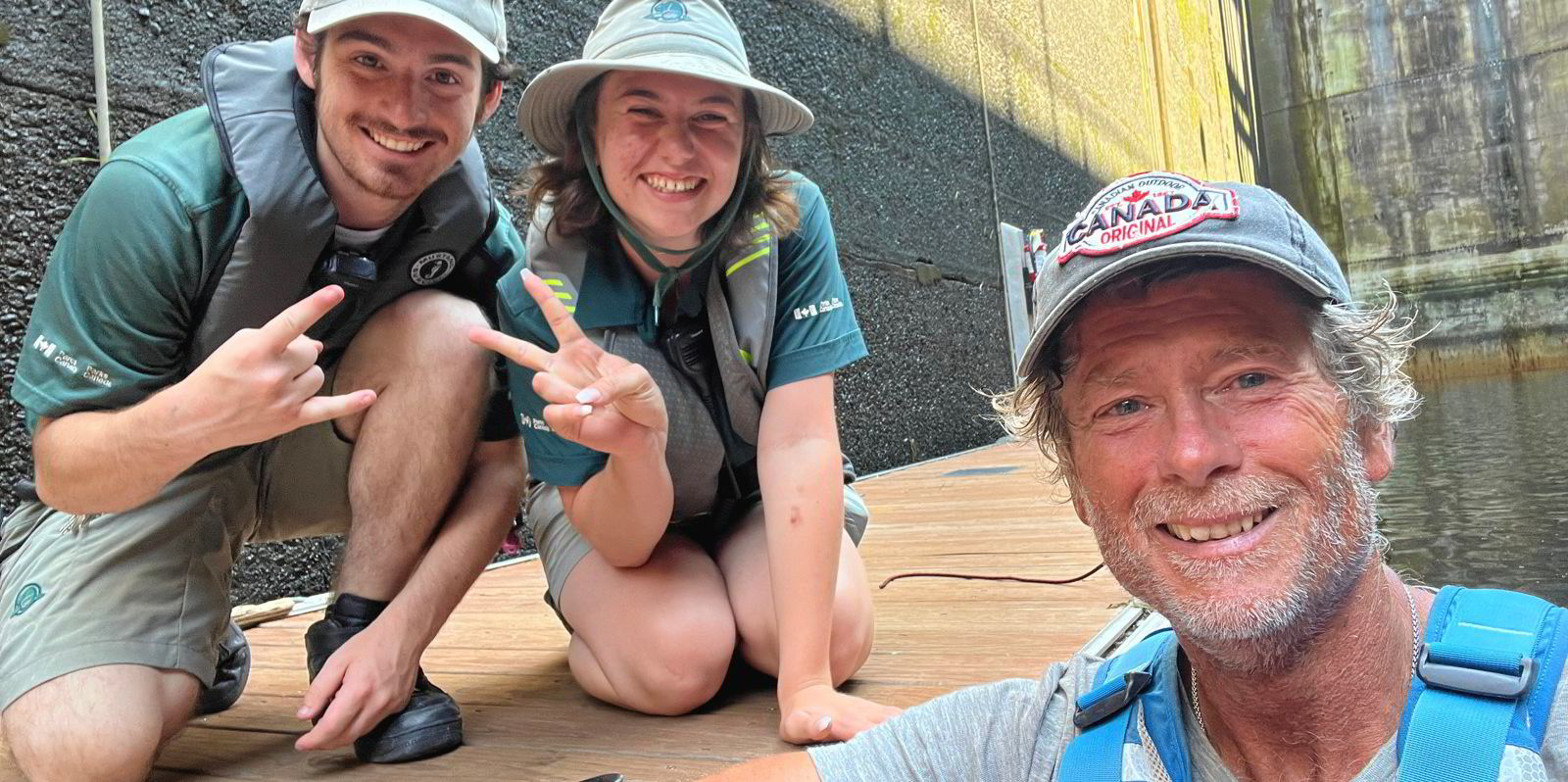At times, Mark Fuhrmann has doubted his motivation for making such a gruelling and dangerous kayak journey halfway across Canada and the length of the US from north to south so far.
But he remains positive about his reasons for supporting the charities Doctors Without Borders and Captains Without Borders.
And his theme of reversing the bad in the world — by doing some good — brings rewards almost every day of his epic 10,500 km (6,500-mile) great loop kayaking trip.
The scenery he passes is often spectacular, but the generosity of strangers he has met along the way has surpassed it.
“Life is all about people,” he said. “I can honestly say I have overdosed on beauty. How can you compare the white granite rocks on the Tennessee River with the high cliffs on the Gaspe Peninsula and the amazing wildlife?
“It’s all beautiful. But people are the most beautiful. They inspire me: behind every face is a story. Everyone has gone through challenging things in life.”
Fuhrmann’s support for Doctors Without Borders is grounded in the fact that his late wife, Kirsten, was herself a physician who died of brain cancer 10 years ago. She had talked about working for the charity that provides urgent medical help in some of the most challenging parts of the world, often in conflict zones such as Afghanistan and Ukraine.
Captains Without Borders is a relatively new organisation that focuses on providing scholarships and assistance to women and people from disadvantaged backgrounds and developing countries who are looking to forge careers in shipping.
One cadet selected for sponsorship is Lulu Chilumo Mwangulu from Kenya. She had excelled academically, understanding this was the only way out of poverty.
Lulu Chilumo Mwangulu, a cadet selected by Captains Without Borders for sponsorship, did a research project on ‘The application of the Fibonacci sequence on the design of a fuel-efficient hull form’ while taking her marine engineering degree in Kenya.
The paper has yet to be subjected to peer review, but Mwangulu sees it as a first step towards her dream to serve on an icebreaker and work her way up the ranks. And, one day, she hopes to design icebreaking ships with zero emissions.
Mwangulu was awarded a scholarship to the Ecole Centrale de Nantes in France to study marine engineering, but her family was unable to provide sufficient extra funds. However, she managed to find the resources to study marine engineering in Kenya and got a degree.
She is currently working on vessels in local traffic, but her dream is to serve on icebreakers in the Arctic.
Her progress mirrors that of Fuhrmann during his adventure.
Some days he has only got about 10km if the tide or a river’s flow has been against him but, on average, he has covered about 30km a day at sea and up to 80km when travelling with the flow on rivers.
“It’s all just small increments that add up to milestones and that is the way it is in life,” he said. “All those small increments put together lead to fantastic things.”
Fuhrmann, 65, estimates he has made well over a million paddle strokes while travelling in his kayak for eight hours per day.
“I am waiting for the body to wear out, so I have a good reason to stop,” he joked.
But Fuhrmann wants to go on experiencing new things and bringing some good to the world while he ponders, “what is my purpose in life?”
So what has he learned?
“Let go of the past,” he said. “Think about today and plan for a better future — and do it. Don’t let that window close.”
Visit www.mark-ervin.com if you want to know more about Mark Fuhrmann’s journey, blogs and the causes he is supporting.






